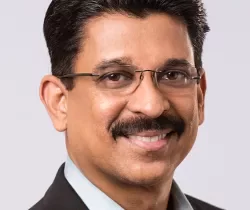Thanks to technology, the trade show space continues to evolve. From digital mapping and augmented reality to IoT and predictive analytics, event marketers have a plethora of tools at their disposable to make their events more impactful than ever. While significantly less flashy than an immersive VR environment at your booth, one tried and true way to impact the ROI of your event is through strategic events and meetings.
Whether they include engagements between executives, subject matter experts, prospects, customers or analysts, strategic meetings help drive business forward. Strategic meetings always have an outcome, ranging from sales and partnerships to investment and potential acquisition.
As the event and meetings space continues to grow, more and more technology solutions are available to assist event marketers and sales professionals in scheduling, measuring and tracking. Below are three ways I expect the event and meeting space to grow and change in 2019.
Events get even more personalized
For successful interactions at events in 2019, event marketing and sales professionals must consider their stack for event software. To bolster your company’s events, take a look at opportunities where registration, mobile, logistics, social media, meeting automation and more can all come together to provide a truly rich experience.
Professionals who incorporate these tools into their event marketing stack will have the ability to personalize interactions with visitors by using software to pre-plan, share event updates with teams and digitally capture and analyze data to revolutionize the way customers experience their journeys.
Exhibitors explore technology solutions to track meetings
Heading into 2019, we expect to see the meeting automation platform(MAP) adoption rate accelerate as the category becomes more mainstream. Industries that are quick to adopt MAP, like technology, telecom and healthcare, will reap the early rewards to doing so and other industries such as retail, finance and transportation will follow suit.
Meeting automation platforms will add value to an organization’s ability to increase B2B engagement where strategic meetings occur, allowing them to gain insights on the impact on advancing revenue pipeline, the return on investments in events, briefing centers, roadshows and ultimately, drive business forward.
Trade shows go virtual
Trade shows will continue to become more important to businesses for a variety of reasons in 2019. Trade shows create a one-stop shop to gather information on your industry, including new trends, innovative technologies and products that have the potential to transform businesses.
No industry or business can ignore the disruptive forces of change. As trade shows continue to provide an opportunity for business leaders and peers to meet in-person, companies will find more ways to incorporate technology to make these interactions more efficient and effective.
For this reason, we can expect to see an increase in the use of virtual technology. Virtual technology allows companies to connect customers and partners at trade shows with subject matter experts from across the world to answer any questions and foster relationships.
Only time will tell if these predictions come to fruition, but one thing is for sure: the future of the event space is bright. Trade shows remain one of the best mediums to reach your partners, prospects, analysts and influencers. But, as the space becomes more crowded, how event marketers improve upon the way those activities are handled will impact their return on investment in the long run.
Don’t miss any event-related news: sign up for our weekly e-Newsletter HERE and engage with us on Twitter, Facebook, LinkedIn and Instagram!



Add new comment